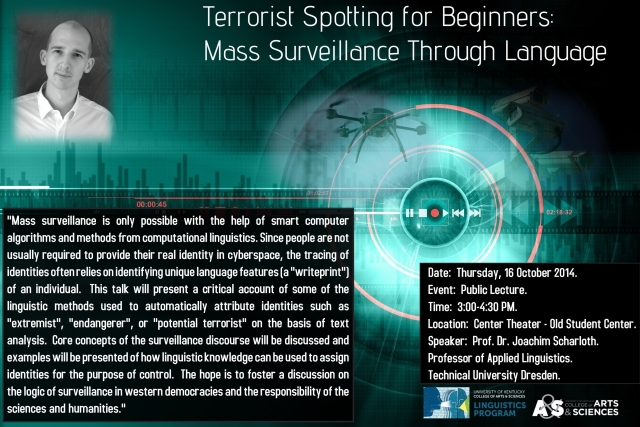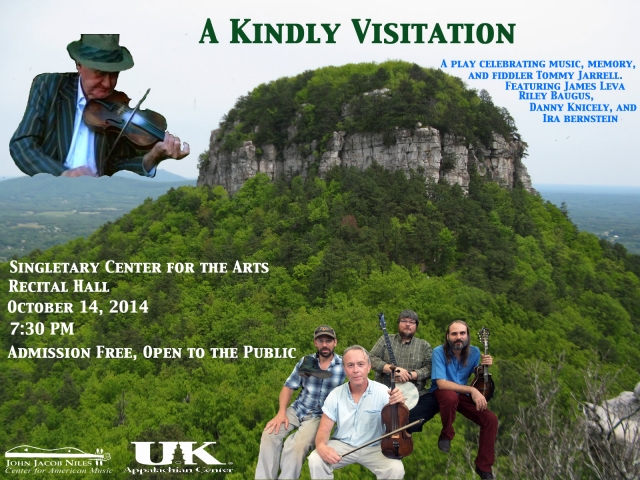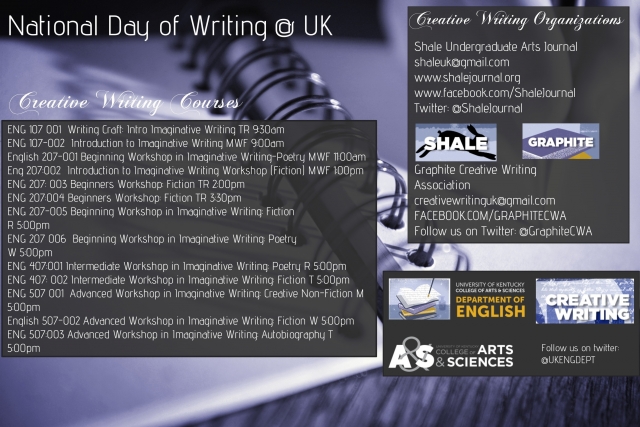Mass surveillance is only possible with the help of smart computer algorithms. Whenever text data is monitored by machines, methods from computational linguistics come into play. The main goal is to automatically filter and identify content that points to certain attitudes or behavioral dispositions viewed as a threat to security. When monitoring online data, the task is even more complicated. Since people are not usually required to provide their real identity in cyberspace, the tracing of identities through language features ("writeprint") is another challenge for computational linguistics at the service of the intelligence apparatus. Surveillance through language relies on the idea of the expressive function of language: Whenever we utter something, we do not just say something about the world to someone else, we also reveal something about ourselves.
In my talk I will give a critical account of some of the linguistic methods used to automatically attribute identities such as "extremist", "endangerer", or "potential terrorist" on the basis of text analysis. Starting with an overview of the political, legal, and technical framework of state surveillance measures in Germany, I will discuss core concepts of the surveillance discourse and present examples of how linguistic knowledge can be used to assign identities for the purpose of control. In doing so, I hope to foster a discussion on the logic of surveillance in western democracies and the responsibility of the sciences and humanities.


 Don't miss this opportunity to see and hear the the James Leva Quartet performing A Kindly Visitation, a play about fiddler Tommy Jarrell. This event is free and open to the public! The performing quartet is James Leva, Riley Baugus, Danny Knicely, and Ira Bernstein. The play starts at 7:30 in the Recital Hall of the Singletary Center for the Arts on Tuesday, October 14, 2014.
Don't miss this opportunity to see and hear the the James Leva Quartet performing A Kindly Visitation, a play about fiddler Tommy Jarrell. This event is free and open to the public! The performing quartet is James Leva, Riley Baugus, Danny Knicely, and Ira Bernstein. The play starts at 7:30 in the Recital Hall of the Singletary Center for the Arts on Tuesday, October 14, 2014.
